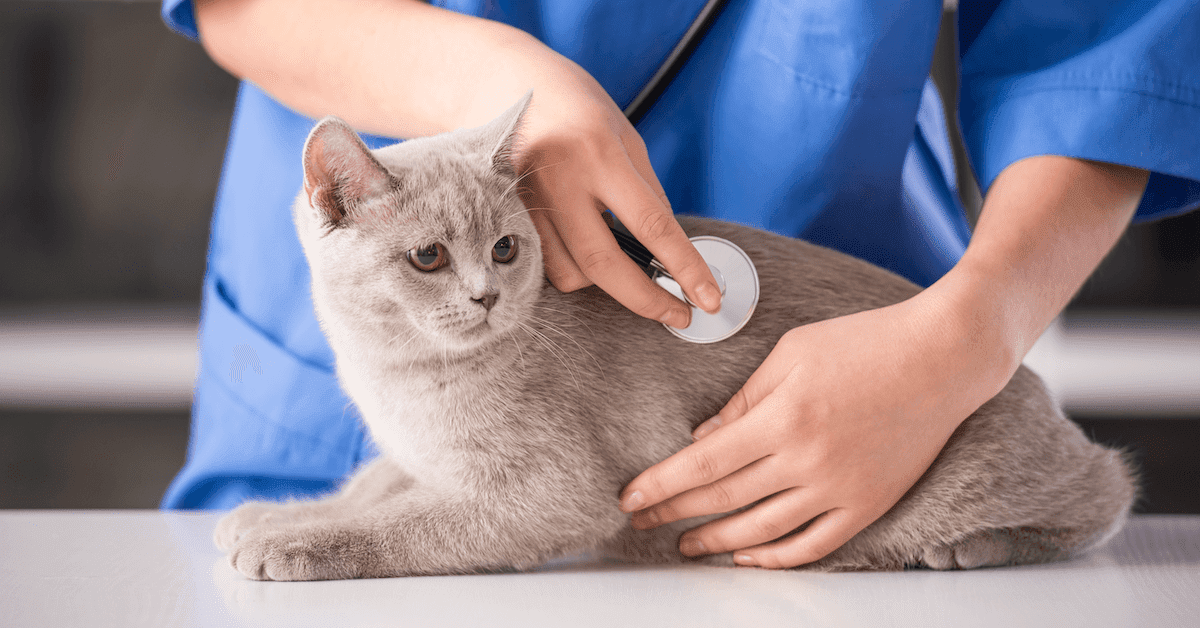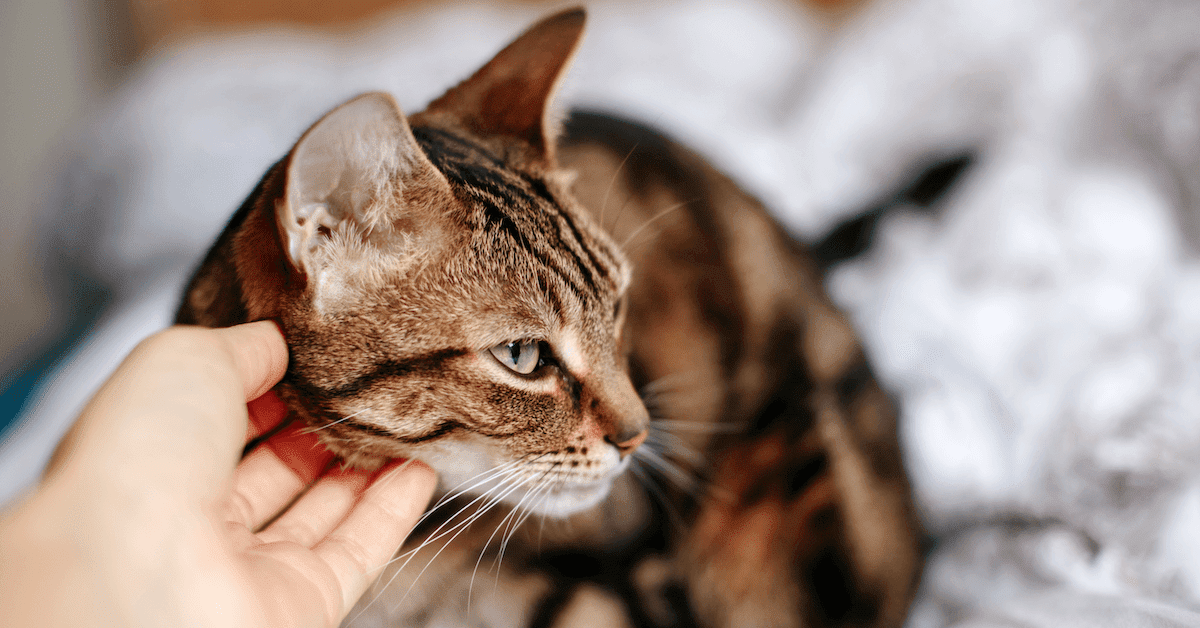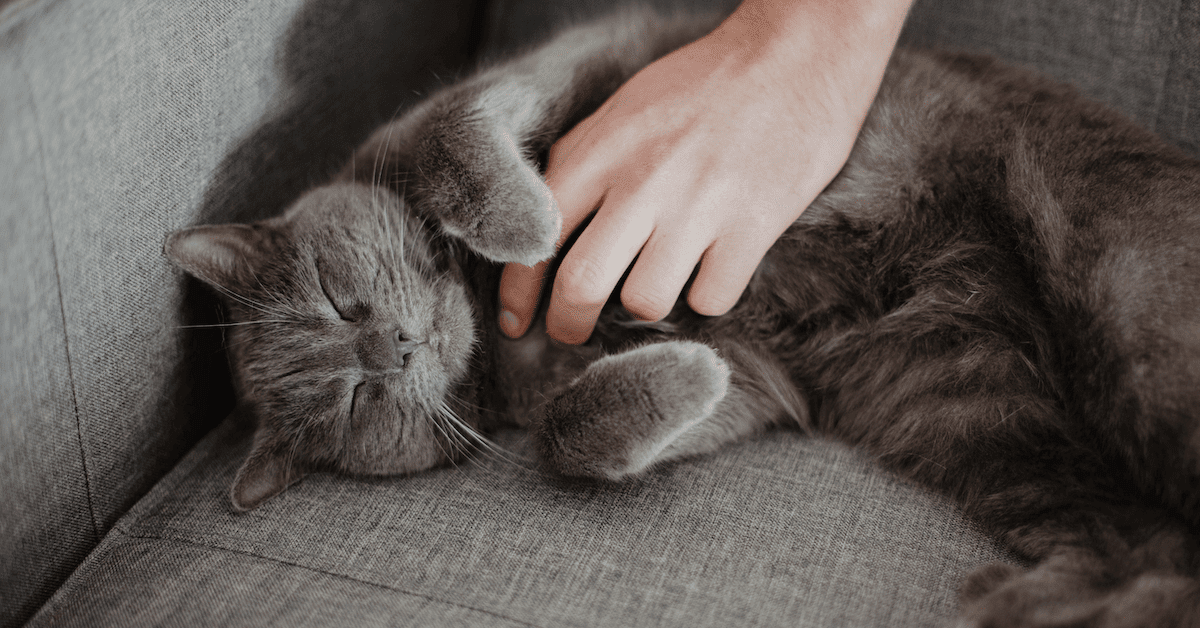Check With Your Vet! Is Stress Causing This Kitty Behaviour?
How does a kitty start their purrfect day? Usually, everything is OK in a kitty’s world as long as they have a routine and their day is predictable. From waking up, to having a good scratch and stretch on their scratching post - before jumping on your bed to make sure you are awake too - they know their day is off to a good start!
But, has your cat started behaving differently and you’re not sure why?
If you think your cat is in pain, or you think they may have an underlying condition, you should always have them checked out by a vet as soon as possible.
THINGS THE VET NEED TO KNOW

Is your kitty more withdrawn than usual?
Their body language will give you an idea of how they are feeling - for example, are they arching their back? How are they holding their tail - in a happy upright position, or concerned flicking?
Have their eating habits changed?
Cats’ eating habits can change for many reasons, including stress. Eating less food, or eating more food, can both be signs that your cat needs medical attention; it’s always advisable to have them checked by a vet to rule out conditions such as a kidney disease, diabetes, thyroid disorder, infections or dental diseases.
Are they happy to be touched or stroked by you?

Sometimes, if cats are stressed, they just want to be left alone, but if they are in pain they could be avoiding any handling that might make the pain worse.
Are they interested in playing with toys?
If your cat is no longer interested in your playtime together, something could be making them feel uncomfortable. They may be feeling out of sorts, so the last thing they want to do is chase after a toy.
Are they sleeping more than usual?
As cats get older, their senses can deteriorate, which in turn could make them feel nervous about their surroundings as they can’t detect changes so easily, which may make resting in their favourite spots more appealing to them. Don’t just assume your older cat is resting more simply because they are older - it’s a good idea to get any major changes in behaviour checked by a vet to rule out any medical issues.
Have their grooming habits changed?
As they become less agile, older cats are less effective with their grooming and this may result in matted fur, or inflammation of their skin - but if your cat is grooming less than usual, it could be a sign that they are feeling sore or uncomfortable.
However, overgrooming can be a sign of stress and anxiety, and can also be caused by pain or as a result of fleas or an allergy.
Are they hiding themselves away for longer periods of time?
Cats will often instinctively hide away if they are in pain or are feeling under the weather. Their ancestors in the wild needed to keep themselves hidden away from their predators if they were injured, so it’s in their genes; you may find your cat still does the same so you might find them under your bed where they feel secure, particularly if they are feeling stressed.
Have their activity levels changed?
If you notice your cat is not scooting around the house in the evening, or they are not jumping onto high shelves - as they would normally do - they may have an injury that is not obvious. They may instead be walking around gingerly and choosing only to climb on to lower objects. Alternatively, your kitty may be feeling anxious and stressed, causing them to hide away somewhere they feel safe.
Are they using their litter tray
Cats are generally very clean animals, so if you’ve noticed that your cat is not using their litter tray and is instead taking to other areas of the house, such as the carpet, this could be an indication that your kitty isn’t feeling well.
It’s also important to keep an eye on how often your cat is using the litter tray. The average cat urinates 3-4 times a day, so if you notice your cat using the litter tray significantly more or less than they usually do, it’s important to get them checked for health problems like urinary tract infections.
SITUATIONS THAT CAN CAUSE KITTY STRESS
Once your vet has ruled out all medical related causes for your cat’s stress related behaviour, consider if there are any situations around the home that may be contributory factors.
- Have you been moving furniture around in your home? Cats don’t like change and if their favourite sofa has been moved, they may be concerned!
- Or - are you moving house? Any upheaval caused by a house move can cause stress to your cat, but there are ways to help your cat to cope with this huge change in their environment.
- Have you had a new addition to your family? A new baby, or member of the household, or even another cat, can confuse your feline friend and make them anxious.
- Can your cat access their resources easily? You may have moved their bed, or access to a hiding place, or perhaps their bed is too close to the washing machine. Remember cats like peace and quiet when eating, drinking, toileting and, of course, sleeping!
- Is your pet urinating outside their litter tray? This may be a stress reaction caused by any of the above, or it could be that they’re just not comfortable with the substrate in the litter tray!
- Are they bored, perhaps? A cat that has access to outside will probably keep themselves entertained climbing trees or exploring under bushes, but indoor cats will need help with their stimulation, and lots of places to climb, explore and of course, plenty of playtime with you.
Using FELIWAY CLASSIC also helps cats by providing enhanced serenity; its holistic message provides reassurance as well as harmony between cats living together. It helps cats with more signs of stress, in more situations, and calms cats better than ever.

